How long have you been in the workforce?
I’ve recently hit that landmark that gets recruiters excited: 10(+) years of experience. I thought now might be a good time to reflect on the various jobs I’ve had (across different industries in NZ and the UK) and try to nail down my top 10 tips for navigating the workplace. If I had followed these tips I think I’d have avoided some serious stress and enjoyed my work more!
Numerous jobs preceded my first ‘real job’: flower stall-holder, apple thinner, pharmacy assistant, product demonstrator, dental assistant (a gap year learning a lot about teeth and seeing some shocking mouths!), travel agent and office temp-er.
My ‘career path’ jobs have been Marketing Executive, Communications Manager and now, Business Owner. Here are my top 10 tips when starting out in the workplace and/or your chosen career:
My top 10 tips:
-
- Use plain English
This was difficult to learn after having had an academic style of writing drilled into me at university. Don’t assume your reader knows your industry-speak, in-house language, and acronyms. Use simple sentence structure and write for your reader. - Ask for what you want
When you have been offered a job and you are reviewing your contract, now is the time to ask for the salary you want and deserve. Confidently present your case and back yourself with examples. You’ll usually be respected for having asked and in most cases, the worst that can happen is that they say no. - Be aware of your mental wellbeing
Hitting the ground running and wanting to make a good impression often meant I started a job giving more than I could sustain long-term. Check-in with yourself often to manage stress levels and talk to your manager if you are overwhelmed. Being honest about your vulnerabilities will often lead to a healthier long-term working relationship. - Actively network, even if you hate it!
I don’t like networking. I’m a natural introvert and I struggle to find the energy and confidence for it. But I have learned that brief encounters can end up having a significant impact on your career. Be yourself. Don’t feel the need to be funny or say something clever. Start with a simple question – what is their role, how long have they been with the company, etc. - Befriend the admin team/receptionist
The admin team can have a large impact on your role and it is worth investing time in them. If you support them, they will support you! They have helped me out of stressful situations many times, for example hurriedly reprinting several hundred brochures that had spelling errors (whoops!), rescheduling important meetings, or making last-minute travel reservations. - Write things down
There have been many times when important contacts or information was mentioned in passing, and when I got back to my desk and I had completely forgotten the details! Write it down on the spot to be sure you have a record. It can also send a good signal to others that you are taking the conversation seriously. - Be proactive and innovative
Coming to your boss with a new idea or ways to improve things always goes down well. Even if the idea doesn’t fly, it shows that you are creative and dedicated to the business. - Know your latest industry and client news
This is an easy way to make a good first impression and is especially important before key meetings and conferences. Avoid the embarrassment of not having anything to say. - Don’t assume anything
Unless you have a confirmation (email preferably) that the meeting/product order/deadline/press release/ has been confirmed, don’t assume it will happen. I’ve been caught out many times, assuming someone knew about a meeting coming up, or that they had to come back to me with information, only to check-in and find that they didn’t. A previous boss taught me this saying: ‘Assuming anything makes as Ass out of U and Me.’ I’ve never forgotten it. - Dress for who you want to be
Look ahead to the role you want to be in next. Dress for it, envision it and act like it so you’ll get there. If you have a workplace uniform, focus on the mental aspects instead.
- Use plain English
Where are you at in your career journey, and what have you learned so far?


